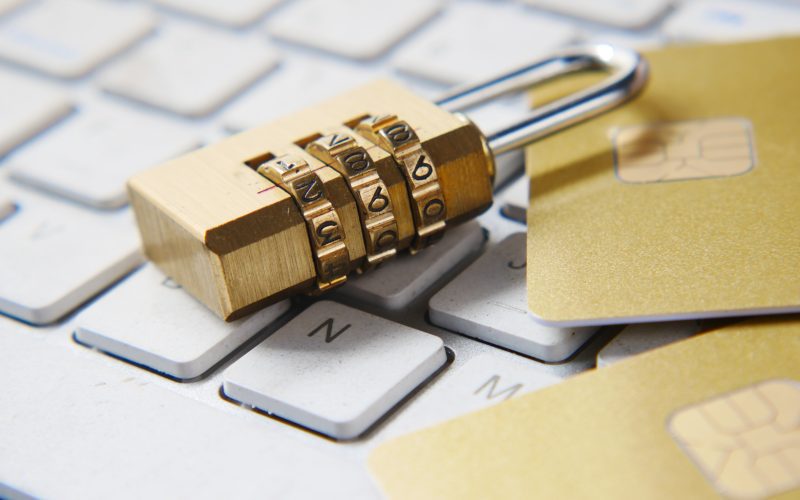Are police body cameras the answer to our privacy concerns, or just another challenge? With growing concerns over police brutality and biased policing, many advocate for the use of body cameras as a way to increase transparency and accountability. But with this technology comes new questions about how it impacts individual privacy rights. In this blog post, we will explore both sides of the argument and examine whether police body cameras are truly a solution or merely add to existing challenges. Join us as we dive into one of today’s most pressing debates in law enforcement!
What are police body cameras?
While the use of police body cameras is a hot topic of debate, there is no denying that they have the potential to be a powerful tool for law enforcement. Body cameras are small, wearable cameras that can record both audio and video footage of interactions between police officers and the public.
The use of body cameras has been shown to reduce complaints against police officers, as well as increase transparency and accountability within law enforcement agencies. However, there are also some concerns about privacy when it comes to the use of body cameras by police.
There are a few different ways that police departments can handle the issue of privacy when using body cameras. One option is to release all footage from body cameras to the public, which would allow for greater transparency but could also invade the privacy of individuals who are captured on camera. Another option is to only release footage from body cameras in cases where there is an accusation of misconduct or use of force by a police officer. This would strike a balance between transparency and privacy, but it could also make it more difficult for members of the public to hold police accountable for their actions.
The decision of whether or not to use body cameras by police departments is one that comes with many considerations. Body cameras have the potential to be a valuable asset for law enforcement, but privacy concerns must also be taken into account.
How do they work?
Most police body cameras are positioned on an officer’s chest or shoulder, and they typically record continuously while activated. The footage is stored on a digital memory card, which can be plugged into a computer for downloading.
Footage from police body cameras may be used as evidence in criminal cases, to help investigate complaints against officers, or for training and performance purposes. In some departments, officers review their own footage after each shift to spot any areas of improvement.
Some police body cameras have built-in GPS systems that track an officer’s location while the camera is activated. This data can be used to reconstruct an officer’s movements during an incident.
While police body cameras offer many potential benefits, there are also privacy concerns that need to be considered. For example, when should footage from body cameras be made public? Who should have access to this footage? How long should the footage be stored?
These are all important questions that need to be addressed before implementing a police body camera program.
Pros and cons of police body cameras
The use of police body cameras is a hotly debated topic. Some people argue that the use of body cameras will help to improve police accountability and help to build trust between the police and the community. Others argue that the use of body cameras is a challenge to privacy concerns and could lead to a slippery slope of government surveillance.
Pros:
1) Police accountability- One of the main arguments for the use of police body cameras is that it can help to improve police accountability. In recent years, there have been a number of high-profile cases in which police officers have used excessive force against civilians, often with tragic results. Body cameras can provide an objective record of what happened during an incident, which can be invaluable when determining whether or not an officer used excessive force.
2) Building trust between police and the community- Another argument in favor of police body cameras is that they can help to build trust between the police and the community. In many communities, there is a significant amount of mistrust between residents and the police. Body cameras can help to bridge this gap by providing transparency into how the police are doing their job. When citizens see that the police are being held accountable for their actions, it can help to increase trust levels.
3) Deterrence- It has been argued that the mere presence of a body camera may deter both police officers and civilians from engaging in criminal or inappropriate behavior. If an officer knows that his or her actions are being recorded, he
Are there any privacy concerns?
The public has long been concerned with the possibility of being watched by the government. In recent years, those concerns have shifted to include the fear of being recorded by police body cameras.
There are a number of privacy concerns associated with police body cameras. The most common concern is that the cameras will be used to record people without their knowledge or consent. There is also a fear that the footage will be used to invade people’s privacy, and that it will be used to target minority groups.
Another concern is that the footage will be used to blackmail or intimidate people. For example, if someone is caught on camera committing a minor infraction, they may be pressured into paying a bribe or facing other consequences.
There are also concerns that the footage will be mishandled or leaked. For instance, there have been cases where body camera footage has been released without the consent of those involved. This can lead to embarrassment or even danger for the people featured in the footage.
Overall, there are a number of valid privacy concerns associated with police body cameras. However, it is important to weigh these concerns against the potential benefits of the technology. Body cameras have the potential to increase accountability and transparency within law enforcement, and they may help to protect both civilians and police officers from false allegations of wrongdoing.
What are the benefits of police body cameras?
Police body cameras have been touted as a solution to the problem of police misconduct. The thinking is that if officers are being monitored by cameras, they will be less likely to engage in misconduct. However, there are also concerns about privacy and the potential for abuse of the technology.
There are several potential benefits of police body cameras. First, they could help to hold officers accountable for their actions. If an officer knows that he or she is being recorded, he or she may be less likely to engage in misconduct. Second, body cameras could provide valuable evidence in cases of police misconduct. The footage from the cameras could be used to investigate allegations of misconduct and determine whether or not an officer acted inappropriately. Third, body cameras could deter crime. If criminals know that they are being recorded, they may be less likely to commit a crime. Finally, body cameras could help to build trust between the police and the community. If the community knows that the police are being monitored, they may be more likely to trust the department and its officers.
Despite these potential benefits, there are also concerns about privacy and the abuse of police body cameras. One worry is that footage from body cameras could be used to invade the privacy of citizens who are not suspected of any crime. For example, footage from a camera might capture people engaged in private activities such as kissing or undressing. Another concern is that footage from body cameras could be used to blackmail or intimidate people who have interacted with the police. For
Are there any other solutions to address privacy concerns?
There are many ways to address privacy concerns when it comes to police body cameras. Some of these solutions include:
– Only allowing police officers to view footage that pertains to their own cases
– Having a third party review all footage before it is released to the public
– Redacting faces and other identifying information from footage before it is made public
– Requiring a warrant before allowing police officers to access footage
– Limiting the amount of time that footage is stored
Each of these solutions has its own merits and drawbacks, but they all work towards the common goal of protecting the privacy of those who are captured on police body camera footage.
Conclusion
Police body cameras have the potential to reduce misconduct and increase transparency within police departments, but they also create serious privacy concerns. It is important for states and local governments to carefully consider their policies for police body cameras in order to protect citizens’ rights while still providing effective law enforcement. The proper use of these devices can help protect the public from harm while respecting personal freedoms, allowing everybody to benefit from the positive aspects of police body cameras without compromising individual privacy.












